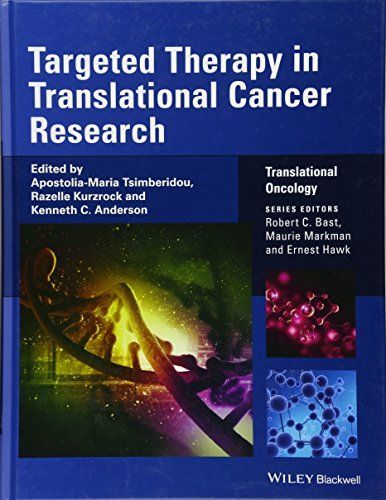
Targeted Therapy in Translational Cancer Research
Translational medicine has opened the gateway to the era of personalized medicine. No longer a one-size-fits-all approach, the treatment of cancer is now based on an understanding of underlying biologic mechanisms and is increasingly being tailored to the molecular specificity of a tumor. Translational Oncology: Targeted Therapy in Translational Cancer Research provides a comprehensive overview of the pertinent molecular discoveries in the cancer field and explains the clinical ramifications and utility of these on targeted cancer therapies. Beginning with a chapter introducing the “Bench to Bedside and Back” paradigm, an overview is presented of the exponential growth in the field of translational medicine, including historical perspectives and recent progress. Following the introduction, subsequent chapters review the progress of targeted therapy within three major categories: hematological malignancies, solid tumors, and hereditary cancers. Each of these categories comprises a single a chapter with subsections that discuss specific cancer types. Following this is a chapter on targeted and functional imaging that reviews progress in the different modalities of anatomical and molecular imaging used to complement targeted therapy. The next chapter discusses the need to combine individual agents with existing therapies or in novel combinations in order to overcome drug resistance. Following this is a chapter presenting the challenges in drug development and the selection of targets for cancer therapeutics. The final chapter offers perspectives on personalized medicine and presents future challenges in the investigation of optimal combinations and the identification of biomarkers that can provide both predictive and prognostic information for tailoring targeted therapies to individual patients.